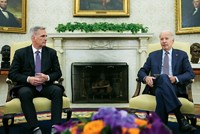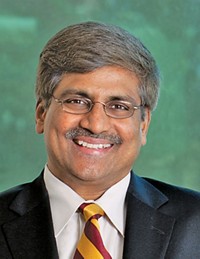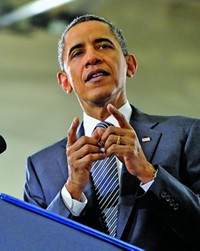Advertisement
Grab your lab coat. Let's get started
Welcome!
Welcome!
Create an account below to get 6 C&EN articles per month, receive newsletters and more - all free.
It seems this is your first time logging in online. Please enter the following information to continue.
As an ACS member you automatically get access to this site. All we need is few more details to create your reading experience.
Not you? Sign in with a different account.
Not you? Sign in with a different account.
ERROR 1
ERROR 1
ERROR 2
ERROR 2
ERROR 2
ERROR 2
ERROR 2
Password and Confirm password must match.
If you have an ACS member number, please enter it here so we can link this account to your membership. (optional)
ERROR 2
ACS values your privacy. By submitting your information, you are gaining access to C&EN and subscribing to our weekly newsletter. We use the information you provide to make your reading experience better, and we will never sell your data to third party members.
Policy
Praise For President Bush
Administration support for physical sciences lauded at symposium
by Rudy M. Baum
March 28, 2006

ACS President E. Ann Nalley hosted a presidential symposium, "Ensuring the Future: Sustaining and Strengthening Basic and Applied Research," on March 26, the first day of the ACS national meeting in Atlanta. She stated that a theme of her presidency is "conveying to the public the value of research." She noted that the ACS Congressional Charter specifically mentions improving the "happiness" of citizens, which can be achieved by transforming basic research findings into useful applications.
Raymond L. Orbach, director of the Department of Energy's Office of Science, said that this "is a particularly auspicious time for the physical sciences." He told the audience: "You should be as excited as I was at the President's State of the Union speech. To hear a president identify science and technology with the quality of life we have enjoyed since World War II was thrilling. It is now up to us to justify this confidence."
Orbach called President George W. Bush's proposal to double the funding of physical sciences over 10 years a "historic opportunity for our country and a renaissance for science." Orbach outlined a number of major projects the Office of Science is supporting.
Michael S. Turner, assistant director for mathematical and physical sciences at the National Science Foundation, echoed Orbach. The President's budget request would increase NSF's budget by $439 million (7.9%) to $6.02 billion and would put the agency on a track to double its total budget to $11.2 billion by 2016.
"The President's American Competitiveness Initiative (ACI) is an investment in the physical sciences to ensure the nation's future competitiveness," Turner told the symposium. "The President has done his part; the challenge is for the rest of us to do our jobs."
Peter Rooney, deputy chief of staff of the House Committee on Science, opened his comments by saying, "We love ACS. It is one of the most effective voices for science in Washington." Rooney called ACI "the most important Administration initiative for science since the 1960s," with $910 million of additional funding for DOE's Office of Science, NSF, and the National Institute of Standards & Technology.
However, Rooney cautioned: "The political establishment does not distinguish among different flavors of science. If some branch of science complains about being left out of ACI, that's going to cause confusion. The important message is that ACI is now a flagship proposal. If we can't make this work, no other science initiative is going to move forward. Failure is not an option."





Join the conversation
Contact the reporter
Submit a Letter to the Editor for publication
Engage with us on Twitter